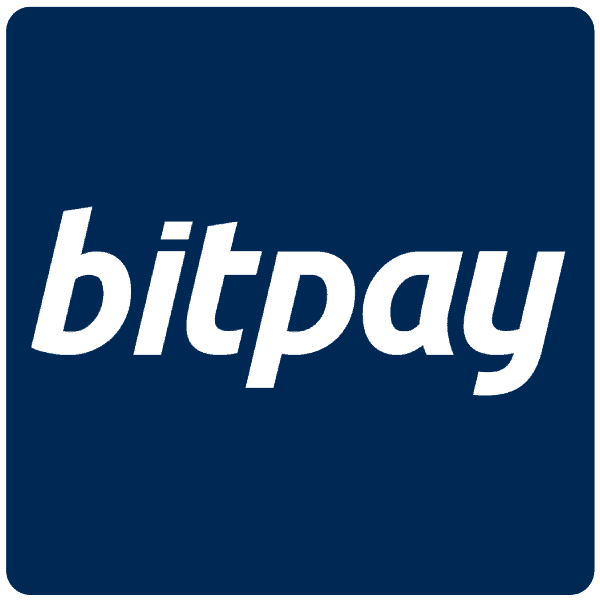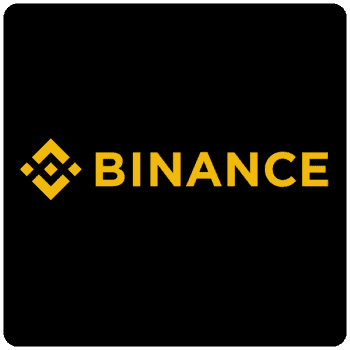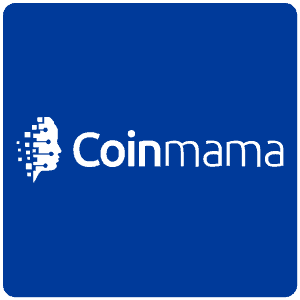BitPay exchange review
Cryptocurrencies:
Fees:
Security system:
Deposit methods:
Cryptocurrencies
BitPay offers 15 cryptos, including some of the biggest ones on the market such as Bitcoin, Ethereum and Polygon.
| Bitcoin (BTC) | Available |
| Bitcoin Cash (BCH) | Available |
| Ethereum (ETH) | Available |
| Wrapped Bitcoin (WBTC) | Available |
| Dogecoin (DOGE) | Available |
| Polygon (MATIC) | Available |
| Litecoin (LTC) | Available |
| Apecoin (APE) | Available |
| Shiba Inu (SHIB) | Available |
| USD Coin (USDC) | Available |
| Dai (DAI) | Available |
| Gemini Dollar (GUSD) | Available |
| Pax Dollar (USDP) | Available |
| Binance (BUSD) | Available |
| Euro Coin (EUROC) | Available |
In contrast, digital payment platform CoinGate supports over 70 cryptos. However, compared to its competitors, BitPay offers a debit card that you can use anywhere where MasterCard is accepted.
Payment methods
Customers can withdraw $2,000 a day or $25,000 a month with the BitPay card and there’s a high maximum balance limit of $25,000. While there’s no deposit limits for the BitPay card, you can spend up to $10,000 a day. BitPay hasn’t disclosed its withdrawal and deposit limits for businesses but does state on its website that it's subject to KYC verification levels.
| Payment method | Limits |
|---|---|
| VISA withdrawal limit | $2,000 a day or $25,000 a month requires KYC verification and ID check |
| MasterCard withdrawal limit | $2,000 a day or $25,000 a month requires KYC verification and ID check |
| Google Pay withdrawal limit | $2,000 a day or $25,000 a month requires KYC verification and ID check |
| Apple Pay withdrawal limit | $2,000 a day or $25,000 a month requires KYC verification and ID check |
Purchase limits
| Payment method | Limits |
| VISA daily purchase limit | $10,000 requires KYC verification and ID check |
| MasterCard daily purchase limit | $10,000 requires KYC verification and ID check |
| Google Pay daily purchase limit | $10,000 requires KYC verification and ID check |
| Apple Pay daily purchase limit | $10,000 requires KYC verification and ID check |
In contrast, Kraken requires KYC checks to buy, sell or exchange cryptos and the company asks you for a government-issued ID or passport and proof of residential address, which can be a utility bill, letter from your local municipality or house rental agreement. In addition, you need to provide a proof of funds (POF) document that covers all deposits or withdrawals via the particular funding method you use. The company accepts tax returns, letters from an accountant stating assets, bank or equities statements, pay stubs showing two years previous income or an accountant's letter stating real estate holdings and inheritance for POF verification.
Similarly, Bitstamp requires multi-step KYC verification to buy, sell or exchange cryptos and the company asks you for proof of identity, which can be a drivers licence, government-issued ID or passport, as well as proof of residential address, which can be a utility bill, correspondence from a government department or bank account statement.
CashtoCode eVoucher
You can’t fund your account with a CashtoCode eVoucher as this isn’t offered at BitPay.
Trading fees
Customers using the BitPay card don’t pay transaction fees but they need to pay a relatively high 2% conversion fee and a flat $2.50 fee every time they cash out funds at an ATM. The card has zero annual or maintenance fees, but there’s a $10 issuance fee to receive the card and a $10 re-issuance fee if it’s lost. Businesses pay monthly transaction fees that are based on the volume of payments they process with BitPay.
| Monthly amount | Transaction fee |
| Up to $500,000 | 2% |
| $500,000-$999,999 | 1.5% |
| $1,000,000+ | 1% |
Staking
BitPay doesn’t offer a staking program.
Is BitPay exchange safe?
BitPay has been in operation since 2011, amassing over three million users across the world and has a range of security measures in place. Customers can also manage their BitPay card transactions through a safe non-custodial wallet.
| Trustpilot | 1.4 star |
A very low percentage of users (4%) rate BitPay with five stars on Trustpilot, which is a low indicator of safety. The most common issues raised are related to account, refund and payment concerns, with many users even alleging that BitPay has stolen funds from their accounts. In addition, BitPay underwent a large-scale hack in 2015 whereby 5,000 Bitcoin, amounting to $1.8 million, was stolen via the account of the company’s Chief Financial Officer, Bryan Krohn. However, people praise them for a great mobile app.
Security
BitPay has industry-leading security measures in place such as multi-signature wallets and a bug bounty program to secure its web network. The company passed its security and compliance audit known as the Service Organization Control 2 (SOC 2), which is a renowned criteria developed by the American Institute of CPAs. In addition, BitPay is regulated by the De Nederlandsche Bank as a payment service provider, pursuant to Section 23b (1) of the Money Laundering and Terrorist Financing Prevention Act.
| Safe coins storage | An undisclosed amount of deposits are held in cold storage. |
| Two-factor authentication | Two-factor authentication via SMS verification is required at BitPay. |
| Information security | End-to-end data encryption of customer and business information. |
| Platform security | Accounts are secured with multi-signature wallets and state-of-the-art facial verification technology. |
| Network security | A bug bounty program. |
In comparison, Kraken has a broader range of security measures in place such as external audits of proof-of-reserves (PoR), data encryption at a system level which adheres to ISO 27001 standards, advanced infrastructure with secure cages that are under 24/7 surveillance by armed guards, alarm systems and video monitors, granular API key permissions, PGP signed and encrypted email, SSL encryption when users browse the online site and internal Kraken Security Labs team.
All customer funds held on Bitstamp are backed 1:1 in custody, while 95% of crypto is securely stored offline in bank-grade Class III vaults and custodians hold insurance for client assets in cold wallets. The exchange is highly regulated with over 50 licenses globally, such as the coveted BitLicense from the New York Department of Financial Services (NYDFS) and over 180 of their staff members perform compliance, legal, risk, security and internal audit functions. They even have a Bitstamp Board Risk and Audit Committee in place.
How to start trading at BitPay exchange?
Registration
You need to create an account in order to register with BitPay and this can be done by:
- Visiting the homepage and inputting your full name and email address so you can create a password and start the process.
- You have to specify if you’re opening an individual or business account.
- You then need to verify your email address.
- After verifying your email address, you are redirected to a page where you can set up your crypto wallet and purchase the BitPay debit card.
- To set up your crypto wallet and purchase a BitPay debit card, you have to complete KYC verification.
- Upon successful registration and passing verification, access to all functions of the site including higher limits are available to you.
KYC
After filling in your account details, you need to go through KYC verification and this process is required for any individual or business who wants to use the platform. Passing KYC checks also unlocks functionalities such as the ability to spend crypto like cash with the BitPay debit card.
You must provide a clear and visible picture of the front and back side of your documents such as proof of address and passport but you don’t need to submit a selfie.
Customer support
Customer service options are limited at BitPay with only an online Help Center that displays FAQs and no phone support or live chat.
| Live chat | No live chat |
| Phone support | No phone support |
| support@bitpay.com | |
| FAQs | Available |
BitPay uses a ticketing system where you need to fill in an online form that includes a subject, description and additional attachment option. For users who are dealing with emergency account issues, there’s no way to speak with customer service on the phone or through live chat.
BitPay is recommended to users who are looking for high purchase limits
BitPay is recommended to users who are looking for a safe non-custodial wallet and a convenient way to spend their crypto like cash through a regulated payment service provider, without any annual, maintenance or transaction fees. A large array of well-known global brands like Microsoft and KFC also use BitPay’s platform to process their crypto payments thanks to the company’s advanced BIP70 protocol API technology. This has led to BitPay integrating with over 250 merchants. However, BitPay only supports 15 cryptos and charges customers a high 2% conversion fee, while businesses pay relatively high transaction fees of up to 2%.
But if you don’t mind this, BitPay can still be a great option if you’re looking for high purchase limits that you can obtain without a credit check. BitPay could improve its platform by charging reduced fees, introducing tiered categories for spending and offering a rewards program where customers can earn a percentage back on their spending.
Alternatives of BitPay
As a multi-product platform, customers can also use Crypto.com to buy and sell over 250 cryptos or to purchase gift cards. The company secures assets in geographically distributed cold storage systems and adheres to both Anti-Money Laundering (AML) and Combating the Financing of Terrorism (CFT) guidelines.
Bitget charges low trading fees based on a tiered maker/taker pricing structure and there’s a 20% trading fee discount offered when using the platform’s own token, BGB, in trades. The company has advanced security measures in place such as bank-level SS data encryption, built-in DPI active systems, third-party network audits, a Bitget Protection Fund containing $300 million and a Bitget Fund Custody service that enables users holding assets over 100,000 USDT to receive a separate custodial wallet. You can also buy, sell or exchange over 100 cryptos.
Similarly, Binance charges low trading fees that are tiered and based on a maker/taker model, with higher volume trades being subject to lower fees. For example, the highest VIP tier pays as little as 0.02% for the maker fee and 0.04% for the taker fee and there’s also a 25% fee discount when using BNB coins in trade. The company has advanced security measures in place such as end-to-end data encryption, account access controls that limit withdrawals to only certain IP addresses and 10% ($1 billion) of all trading funds are stored in a SAFU in order to reimburse users in the event of a hack. You can also buy, sell or exchange over 350 cryptos.
FAQs
Yes, because BitPay has been in operation since 2011, amassing over three million users across the world and has advanced platform and network security measures in place.
Yes, BitPay offers aggregated price data for 15 cryptos.
Customers using the BitPay card don’t pay transaction fees but they need to pay a 2% conversion fee and a flat $2.50 fee every time they cash out funds at an ATM. Businesses pay monthly transaction fees that are based on the volume of payments they process with BitPay.
Visit the homepage and click on the ‘Get Started’ icon at the top-right hand corner, you can then click on ‘Join Waitlist’ in order to receive the BitPay card.
You can manage your card and track spending via the BitPay mobile app.
They accept MasterCard and VISA but it’s not apparent whether they are currently working to enlarge the choice of cards available for users.
Specification: BitPay exchange review
| Bezahlmethoden | ||||||
|---|---|---|---|---|---|---|
|
||||||
| Specification | ||||||
|
||||||











